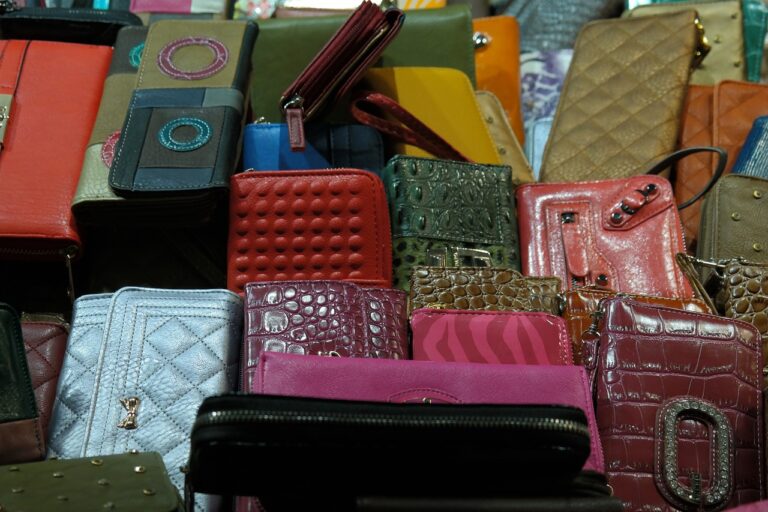Sustainable Fashion Startups: Pioneering Eco-Friendly Designs
The sustainable fashion industry has witnessed significant growth in recent years as consumers become more conscious of the environmental and social impact of traditional fashion practices. This shift has led to an increased demand for ethically produced clothing and accessories, prompting many brands to adopt sustainable practices in their production processes.
From using eco-friendly materials to implementing fair labor practices, sustainable fashion brands prioritize transparency and accountability throughout their supply chains. This commitment to sustainability not only benefits the environment but also resonates with consumers who seek to align their values with the brands they support. As the industry continues to evolve, it is expected that the demand for sustainable fashion will only continue to rise, driving further innovation and positive change in the fashion world.
Challenges Faced by Traditional Fashion Brands
Traditional fashion brands are encountering numerous obstacles in the face of growing consumer demand for sustainability. One major challenge is the need to change their production processes, which often rely on resource-intensive methods and generate a significant amount of waste. This shift towards sustainable practices requires a reevaluation of their supply chains, manufacturing techniques, and overall business model.
Moreover, traditional fashion brands are struggling to keep up with the increasing pressure to meet ethical standards in their labor practices. Issues such as worker rights, fair wages, and safe working conditions have become paramount in the industry, leading to scrutiny from consumers, activists, and regulatory bodies. Addressing these concerns while maintaining profitability poses a significant challenge for these brands.
Innovative Materials Used in Sustainable Fashion
When it comes to sustainable fashion, innovative materials play a crucial role in reducing the environmental impact of the industry. Designers and brands are increasingly turning to alternative materials that are eco-friendly and ethically sourced. From organic cotton and hemp to recycled polyester and Tencel, these materials offer a more sustainable option for creating clothing and accessories.
One of the most exciting developments in sustainable fashion is the use of innovative fabrics made from recycled materials such as plastic bottles, fishing nets, and even food waste. By upcycling these materials, fashion brands are not only reducing the amount of waste in landfills but also conserving resources and lowering their carbon footprint. These recycled materials can be transformed into high-quality textiles that are both durable and stylish, proving that sustainability and fashion can indeed go hand in hand.
• Organic cotton and hemp are popular choices for sustainable fashion due to their minimal environmental impact and biodegradability.
• Recycled polyester is another innovative material that is made from post-consumer plastic bottles, diverting waste from landfills and reducing the need for virgin polyester production.
• Tencel, a fiber made from sustainably sourced wood pulp, offers a soft feel and drape similar to silk while being more environmentally friendly.
• Fabrics made from recycled materials like plastic bottles, fishing nets, and food waste showcase the creativity of designers in utilizing unconventional sources for sustainable fashion.
What is sustainable fashion?
Sustainable fashion refers to clothing and accessories that are produced in an environmentally and socially responsible manner, taking into consideration the impact on the planet and people.
What are some challenges faced by traditional fashion brands in adopting sustainable practices?
Traditional fashion brands often face challenges such as sourcing sustainable materials, implementing ethical manufacturing practices, and ensuring transparency in their supply chain.
What are some innovative materials used in sustainable fashion?
Some innovative materials used in sustainable fashion include organic cotton, recycled polyester, Tencel (made from wood pulp), Piñatex (made from pineapple leaves), and Econyl (made from recycled nylon).
How can consumers support the sustainable fashion industry?
Consumers can support the sustainable fashion industry by purchasing from brands that prioritize ethical and sustainable practices, educating themselves on sustainable fashion, and advocating for greater transparency in the fashion industry.
Why is it important for the fashion industry to embrace sustainability?
Embracing sustainability in the fashion industry is important for reducing the environmental impact of clothing production, improving working conditions for garment workers, and promoting a more ethical and responsible approach to fashion.







